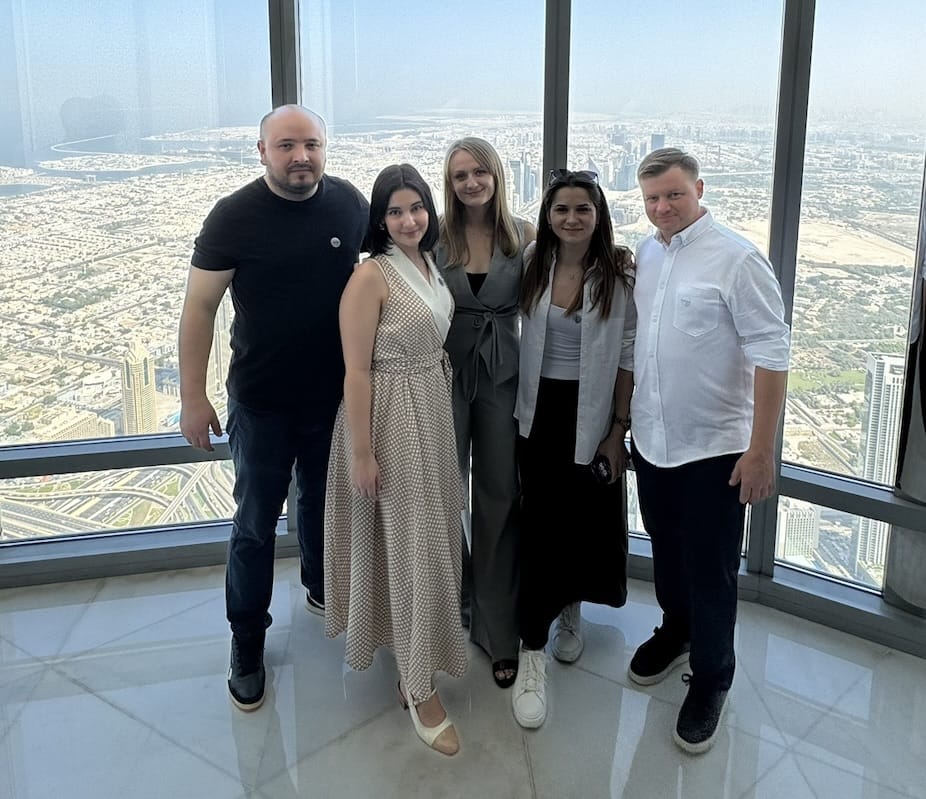Mid 2021, during the pandemic, Moldovan-born entrepreneurs Viorica Vanica and Elena Oprea were both going through breakups and searching for therapy services. Their big city life and jobs in tech were not bringing them as much fulfilment as they wanted. To clear her mind, Elena took a 10-day silent Vipassana meditation retreat. After ten days of no talking, reading, and writing, she made a revelation: it was now or never to pursue her dream of becoming an entrepreneur.
The concept was simple yet profound: an app that helped her understand her emotions and calm them in difficult moments, the same as a therapist would do as a therapist might. This breakthrough moment set her on an unexpected path from corporate life to entrepreneurship.
Elena had spent three years in London working at a startup studio, building products for other founders. But despite professional progress, “life felt kind of empty” as she craved more meaning. In 2019, she considered traditional therapy but balked at the high cost. Instead, she took matters into her own hands. By September 2020, she was enrolled in a year-long hypnotherapy certification course with UK expert Marisa Peer.
The training was transformative: even a few practice sessions felt so heart‑fulfilling that “I literally thought that was my calling”. During this process, it clicked: a part of what a therapist does could be delivered via technology. Elena said that by late 2021, she had realized part of a therapist’s guidance could live in an app, “like Spotify, but instead of music, you listen to what a therapist would say”. That insight planted the first seed of Selftalk.
Selftalk is a guided self-therapy app grounded in clinical science. The platform’s content is built by psychologists and therapists, and it blends cognitive psychology with philosophy (ontology) to explore how we think and who we are at our core. Key features that set Selftalk apart include:
- Psychology + Philosophy: Combines mind science with the nature of ontology, so users address not just symptoms but underlying all the ways of being.
- Evidence-Based Interventions: Uses structured, science-backed exercises to train lasting self-therapy skills, “teaching you how to fish, not just giving you the fish”.
- Human-First AI Second: All journeys and protocols are designed by clinical experts, with AI serving as a personalized delivery tool.
The app offers a library of self-therapy journeys on common issues. For example, popular journeys include Conquering Procrastination and Feeling Enough (addressing the common sense of not being “enough”). Each journey is a structured protocol of evidence‑based exercises and prompts, often delivered in audio or interactive text. (See the Selftalk Journeys page for the full list.) These journeys draw on therapeutic methods like cognitive behavioral techniques and acceptance-based practices, repackaged so users can work through them anytime, much like having a therapist on call.
In December (from their childhood homes), they technically launched the B2C2B version of the Selftalk app. Even with a few launch bugs, they saw “a few hundred new users” join organically, driven only by the founders’ own content and zero ad spend. This early traction validated that real demand existed for guided self-therapy.
For Viorica and Elena, Selftalk is more than an app; it’s the start of a larger emotional fitness movement. They envision Selftalk becoming “a global movement in self-therapy, where emotional growth is as natural and accessible as going to the gym.” The goal is bold: through word-of-mouth and organic sharing, they aim to reach roughly 1 million people by 2026. To reinforce the community, the team plans features like anonymous sharing and group challenges so users realize they aren’t alone in their struggles.
In short, Viorica and Elena’s vision is to democratize access to cognitive and behavioral therapy, making well-being something everyone can build, not just afford.
Viorica and Elena invite readers to try their self-therapy approach: “What to try therapy on your own? Use these self-therapy protocols to talk to yourself, just like a psychologist would,” they suggest. The Selftalk app is available now on web and mobile (visit selftalk.space to download it). For a limited time, there is a special lifetime subscription deal for early adopters.
The co-founders also co-wrote a book titled Self-Talk: The Science and Practice of Creating Peace of Mind, which delves into their story and the psychology behind their methods (available here). Readers were surprised by the raw honesty within its pages, as Viorica and Elena had the courage to openly share their true journey, including challenging moments of self-talk they faced and overcame.
To stay updated, follow Selftalk on Instagram and LinkedIn, and check out Elena Oprea’s recent articles on their LinkedIn page. Discover Selftalk today and start your own journey toward greater self-awareness and emotional fitness.



































